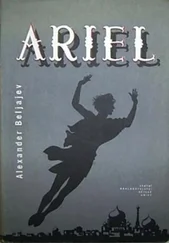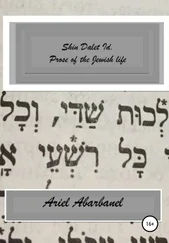Ariel Toaff - Blood Passover
Здесь есть возможность читать онлайн «Ariel Toaff - Blood Passover» весь текст электронной книги совершенно бесплатно (целиком полную версию без сокращений). В некоторых случаях можно слушать аудио, скачать через торрент в формате fb2 и присутствует краткое содержание. Жанр: Религиоведение, на английском языке. Описание произведения, (предисловие) а так же отзывы посетителей доступны на портале библиотеки ЛибКат.
- Название:Blood Passover
- Автор:
- Жанр:
- Год:неизвестен
- ISBN:нет данных
- Рейтинг книги:3 / 5. Голосов: 1
-
Избранное:Добавить в избранное
- Отзывы:
-
Ваша оценка:
- 60
- 1
- 2
- 3
- 4
- 5
Blood Passover: краткое содержание, описание и аннотация
Предлагаем к чтению аннотацию, описание, краткое содержание или предисловие (зависит от того, что написал сам автор книги «Blood Passover»). Если вы не нашли необходимую информацию о книге — напишите в комментариях, мы постараемся отыскать её.
Blood Passover — читать онлайн бесплатно полную книгу (весь текст) целиком
Ниже представлен текст книги, разбитый по страницам. Система сохранения места последней прочитанной страницы, позволяет с удобством читать онлайн бесплатно книгу «Blood Passover», без необходимости каждый раз заново искать на чём Вы остановились. Поставьте закладку, и сможете в любой момент перейти на страницу, на которой закончили чтение.
Интервал:
Закладка:
In all probability, the ambassadorship of the Jews conferring with Friedrich III as described by Capsali was headed by David Mavrogonato (in Italian, Maurogonato), an adventurer and not overly-scrupulous businessman in the service of the Republic of Venice, a person of enormous financial resources and great influence, a native of Candia who was often sent on hazardous missions to the lands of the Aegean and the Great Turk, where he was to run many risks and die a cruel death; on the other hand, he was certainly capable of procuring sumptuous stipends and profitable privileges for himself [30] On David Magrogonato, "judeus de Creta et mercator in Venetiis" [“Jew from Crete and merchant at Venice”], see, in particular, D. Jacoby, David Mavrogonato of Candia. Fifteenth Century Jewish Merchant, Intercessor and Spy , in "Tarbiz", XXXII (1964), pp. 388-402 (in Hebrew); Id., Un Agent juif au service de Venise . David Mavrogonato de Candie, in "Thesaurismata. Bollettino dell'Istituto Ellenico di Studi Bizantini e Post-Bizantini", IX (1972), pp. 68-77, (republished in Id., Recherches sur la Méditerannée orientale du XIIe au XVe siècle , London, 1979, pp. 68-96); M. Manoussacas, Le receuil de privilèges de la famille juive Mavroganto de Crète (1464-1642), in "Byzantinische Forschungen", XII (1987), pp. 345-366; Carpi, L'Individuo e la colletività , cit., pp. 41-43.
.
p. 21]
Maestro Tobias da Magdeburg, the humble physician from Trent, had seen Mavrogonato at Venice during the days of the imperial visit, although he did not know Mavrogonato’s name. He had observed Mavrogonato with respect and reverential fear; he knew approximately where he lived, although he did not know the exact address; but he was well aware that he would never have been able to approach Mavrogonato without undergoing the suspicious appraisal of Mavrogonato’s bodyguards. Perhaps Tobias thought that Mavrogonato’s recommendation would help get him, Tobias, included in the list of people enjoying the Emperor's favor, or those about to receive a Doctorate, but he was unable, or did not dare, to ask for it. The personage and appearance of Mavrogonato nevertheless remained imprinted in his memory after many years; in 1475, in speaking to the judges at Trent, he envisioned Mavrogonato as follows, erroneously imagining that he might be still alive:
"He might have been forty four or forty five years old; he wore his hair long and wore a black beard, like the Greeks. He wore a black cloak that came down to his feet, and covered his head with a black cap. In substance, he dressed like the Greeks" [31] "Et erat etatis annorum XL quatuor vel quinquaginta, cum capillis et barba nigra prolixa, more Greco, et indutus clamide nigro usque ad pedes, cum caputio nigro in capite, dicens quod aliquando induebat se veste sicut portant Greci" [“He was about 40 or 50 years old, with black hair and a long black beard, in the Greek style, and wore a black cap on his head, saying that he preferred to dress like a Greek”] , (cfr. Esposito e Quaglioni, Processi, cit., vol. I, p. 329). On the indubitable identification of the personage in question with David Mavrogonato, see D. Nissim, Il legame tra I processi di Trento contro gli ebrei e la tipografia ebraica di Piova di Sacco del 1475 , in "Annali dell'Istituto Storico Italo-Germanico in Trento", XXV (1999), pp. 669-678.
.
But who was David Mavrogonato really? An ambiguous and mysterious character, Mavrogonato appeared in Venice in 1461 on his own initiative to reveal a conspiracy being hatched on the island of Candia against the Serenissima. The Council of Ten did not hesitate to take the Jewish merchant into its service and send him back to Candia on a secret mission to spy on the conspirators and report them to the Venetian authorities, after gathering the evidence required for their arrest [32] Cfr Jacoby, Un agent juif , cit., pp. 69-70; Manoussacas, Le recueil de privilèges , cit., p. 345.
. Mavrogonato carried out the mission to perfection, although his tireless commitment finally ended by blowing his cover, rendering continued residence on his native island impossible, since, as he claimed, both Greeks and Jews "pointed him out with their fingers", considering him a vile informer, or malshin in Jewish juridical terminology, a term with lethal penal implications [33] "Praedictus David [...] passus fuit et publicum odium, quod ipse in tota insual tam per Christianos quam per Judeos acquisisset, cum jam digito mostraretur ab omnibus." [The aforementioned David […] became an object of public hatred, known to both Jews and Christians all over the island, who pointed him out with their fingers”]. This document, dated 29 December 1463, together with other privileges granted Mavrogonato by Venice, is located in the Archivio di Stato di Venezia (henceforth: ASV), Inquisitorato agli Ebrei , envelope 19, doc no. 3. Late printed copies of these privileges, entitled Per David Mavrogonato contro Senseri Ordinari di Rialto e Stampa dell'Università tutta degli Ebrei di Venezia are located in the ASV, Inquisitorato agli Ebrei (envelopes 39 and 5 respectively). See also, in this regard, Manoussacas, Le recueil de privilèges , cit., p. 346.
. We also know that Mose Capsali, rabbi at Constantinople, had threatened Mavrogonato with excommunication at the request of the Jews of Candia [34] Cfr. Jacoby, Un agent juif , cit., pp. 81-82.
.
The privileges requested early in his career by Mavrogonato in return for services rendered were granted without delay and with expressions of profound gratitude by the Council of Ten in December of 1463. These rights, which extended to his sons Jacob and Elia and his descendents in perpetuity included, among other things, exemption from the wearing of the distinctive sign required of the Jews, and authorization
p. 22]
to move about armed wherever he wished. He was not, however, granted the privilege, odd in appearance, but perfectly consistent with the type of persons with whom he had to deal, of striking two names off the list of banned wanted by the Serenissima for the crime of homicide [35] " Se degni concierderli ch'el porta segno del .O. per sua salude d ch'el possa portare Arme [...]. Item li sia concesso poder cavar de Bando per puro omicidio do Persone solamente.” [“If he be deemed worthy to be granted the right to bear the insignia of the O. [O. = possibly “Uomo di bene”, gentleman or Christian] for his health and to bear arms […]; that he be granted the right to cause certain persons wanted for homicide to be stricken from the list of banned persons”]. This last clause appears in the printed document in the ASV, Inquisitorato agli Ebrei , envelope 39, while it is missing from the manuscript text of the privileges (ibidem, envelope 19, doc no. 4).
. Mavrogonato, Judeus de Creta et mercator in Venetiis , knew full well who might have benefited from such a clause, and had very definite ideas about certain people condemned in absentia who might thus have been permitted to return in the territories under Venetian domination. At this point, the entrepreneurial Jew from Candia, a permanent resident of Venice since the beginning of 1464, traveling frequently and easily, supervising his goods and entering and leaving the port en route for Candia and Constantinople, was officially a spy in the service of the Republic and at its disposal for other, more or less hazardous, secret missions.
In effect, Mavrogonato is thought to have been sent to Candia and Constantinople at least four times, in 1465, the next year, in 1468 and in 1470, during the first Venetian-Turkish War [36] Cfr. Jacoby, Un agent juif, cit., pp. 75-77.
. It is possible that, in 1468, on the eve of Friedrich’s imperial visit to Venice, Mavrogonato may have accompanied a vessel, loaded with goods owned by himself, from Candia to the Venetian landing place. In June of 1465, a decree signed by the Council of Ten officially admitted that Mavrogonato had been sent to the capital of the Great Turk to spy on the enemy; in 1466, he was referred to the "Jew from Crete, called David", called upon by Venice to participate in the peace negotiations with the Sultan Mahomet II [37] Cfr. Manoussacas , Le recueuil de privilèges , cit., p. 345. See also Sanudo's comments on the year 1466: "In questo mezo Vettor Capello, Capetanio Zeneral nostro, haveno hautto pr via di quel David (Mavrogonato) hebreo il salvoconducto dal Signor turcho di poter la Signoria mandarli uno ambassado [... per] veder i tratar qualche acordo" [“In this way, Vettor Capello, our Captain General, having obtained through David (Mavrogonato) a safeconduct from the Great Turk to send an ambassador […to] attempt to reach some agreement[“], (Sanudo, Le vite dei dogi , cit., vol. II, pp. 88-89.
.
Интервал:
Закладка:
Похожие книги на «Blood Passover»
Представляем Вашему вниманию похожие книги на «Blood Passover» списком для выбора. Мы отобрали схожую по названию и смыслу литературу в надежде предоставить читателям больше вариантов отыскать новые, интересные, ещё непрочитанные произведения.
Обсуждение, отзывы о книге «Blood Passover» и просто собственные мнения читателей. Оставьте ваши комментарии, напишите, что Вы думаете о произведении, его смысле или главных героях. Укажите что конкретно понравилось, а что нет, и почему Вы так считаете.












